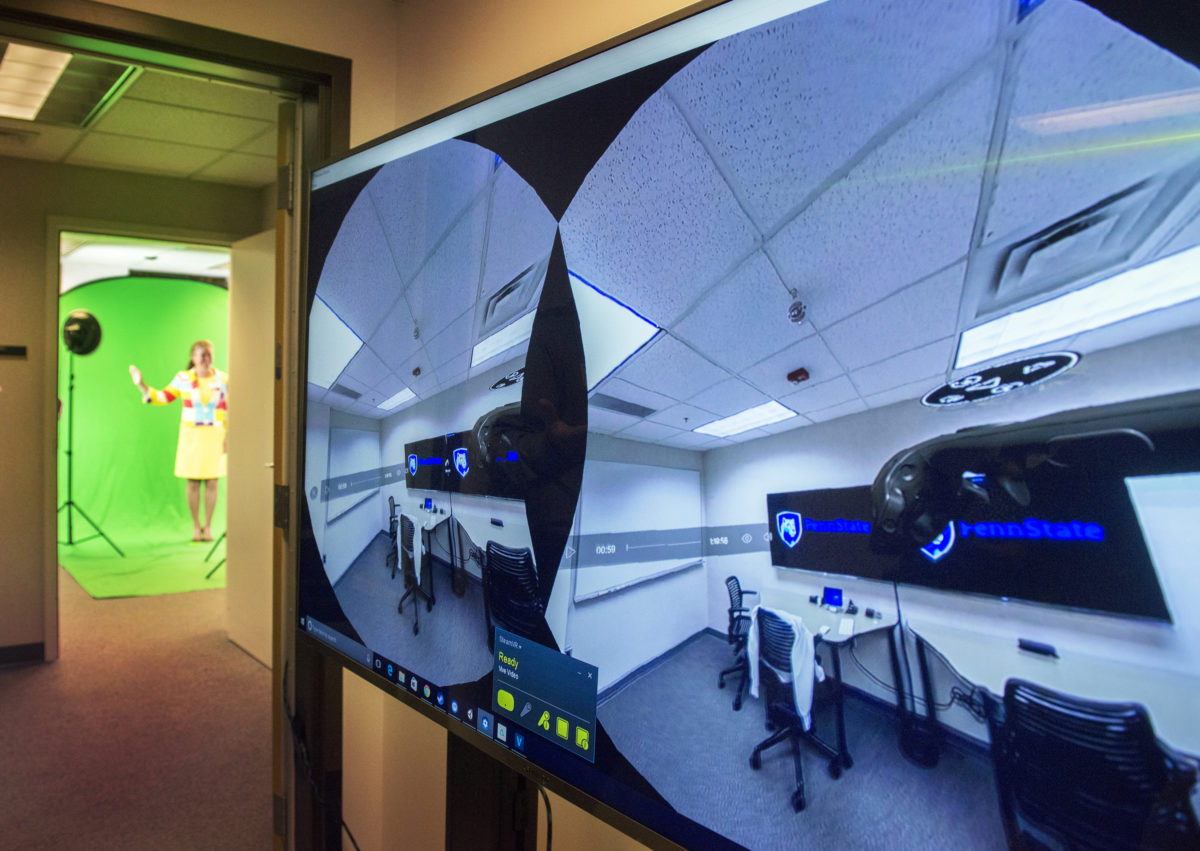A grant awarded by the U.S. Department of Justice is helping Penn State University’s College of Nursing improve access to high-quality forensic sexual assault care in rural areas through the opening of a forensic simulation lab.
The lab was created in the spring to stand as a hub for IT technology to support the teleforensic program. It is a part of a larger project with the Pennsylvania Sexual Assault Forensic Examination and Telehealth (SAFE-T) Center headed up by Dr. Sheridan Miyamoto, assistant professor of nursing and faculty in the Child Maltreatment Solutions Network.
“This program has the potential to improve forensic evidence collection, forensic exam quality and patient satisfaction with care received,” Miyamoto said in an email to Technical.ly.
Miyamoto said the objective of the Center is to develop an innovative program that will address the needs of rural forensic Sexual Assault Nurse Examiners, or SANEs, by providing 24/7 live exam mentoring, peer review, networking and education via telehealth technology.
The college celebrated the grand opening of its forensic simulation lab this summer, but students have already had the chance to participate in an “immersive experience” in the lab this past spring.
“The space will function as an immersive simulation lab,” Miyamoto explained, “complete with forensic mannequins, virtual reality technology and observation space for our expert SANE providers, rural SANE providers and Penn State students in the Child Maltreatment and Advocacy Studies minor.”
The SAFE-T Center is currently in a planning phase, said Miyamoto, with the entirety of the program to be launched in March of 2018. In order to meet the Center’s objective, Miyamoto is working to establish four rural pilot sites to receive telehealth support. One of those pilot sites is Geisinger Lewistown.
“Being selected is huge for us. We are a small community hospital with 20 beds. [The pilot] is bringing us new pieces of equipment, which means better images, being able to collect better quality of evidence,” said Tiffany Boozel, administrative team coordinator and trained SANE at Geisinger Lewistown.
“Things haven’t been rolled out completely, but just going to the open house … each pilot site is getting higher quality than what we are [currently] using.”
Boozel said her hospital sees around 10–12 SAFE cases a year and is seeing an increase in that number. But even with an increase in the number of cases they see, Boozel said the nurses at her hospital are not using their skills frequently enough to become comfortable.
The pilot will give ongoing education, which Boozel called a “peace of mind.”
“As we collect evidence, [experienced SANEs] can talk to the patient,” she explained.
Boozel added that this will happen through the use of iPads and television monitors. The expert SANE provider will be able to go over evidence and give recommendations to the rural nurse as the examination is conducted.
“This program has the potential to improve forensic evidence collection, forensic exam quality and patient satisfaction with the care received,” said Miyamoto. “We also hope to show that this program can sustain a workforce, increase access and quality of care for victims, and reduce costs related to SANE turnover and improved plea and prosecution success.”
[googlemaps https://www.google.com/maps/d/u/0/embed?mid=1fAjLwwFCWeFH3RWL0dxRnqZF5y4&w=300&h=150]







